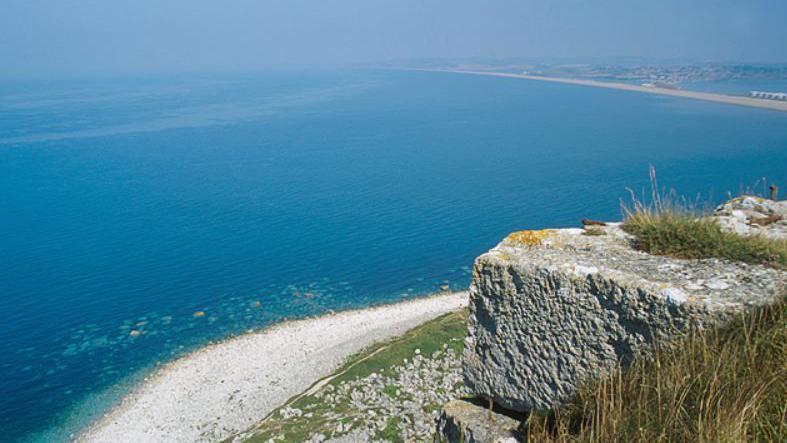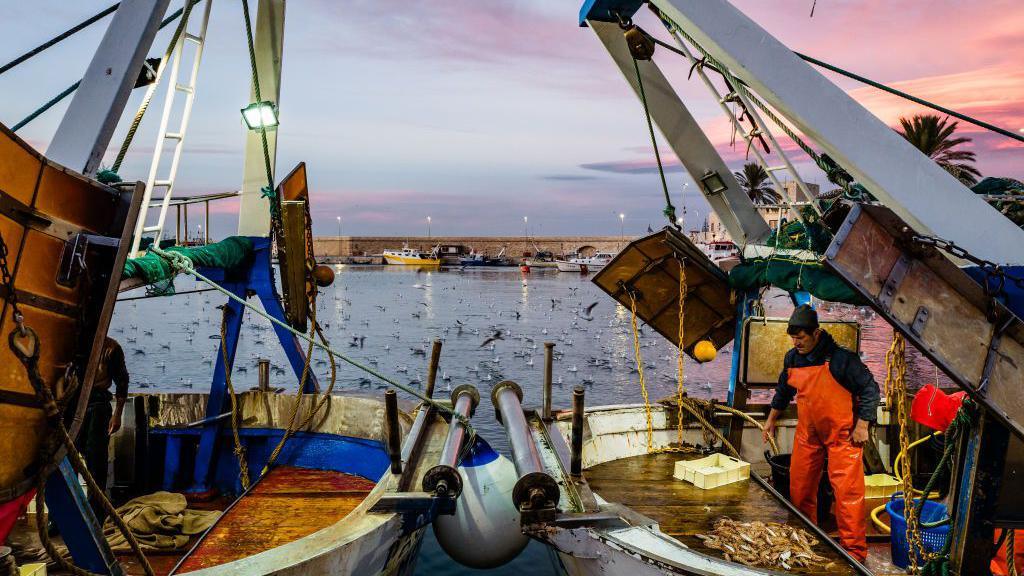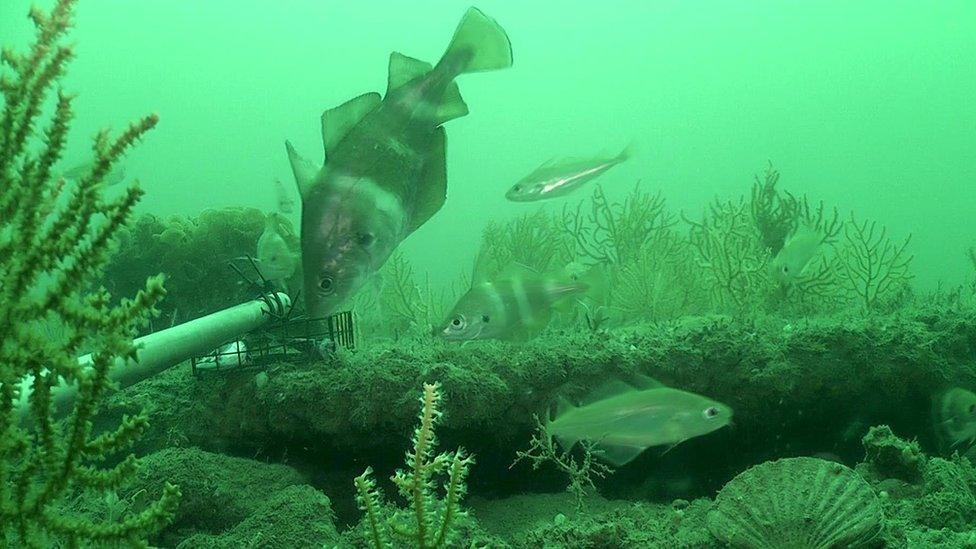Bay 'still recovering' from bottom trawling

Lyme Bay, off the Dorset and Devon coast, became a Marine Protection Area in 2008
- Published
Part of the seabed off the Jurassic Coast is "still recovering" from the effects of bottom trawling 17 years after it was banned there, marine researchers have said.
A consultation is being held on government proposals to extend the ban on the practice of dragging large nets along the seafloor.
Some fishing organisations have criticised the plans and questioned the environmental impact of bottom trawling.
Dr Emma Sheehan, associate professor of marine ecology at Plymouth University said, ending bottom trawling when Lyme Bay, off the Dorset and Devon coast, became a Marine Protected Area in 2008 has made a "positive change".
The government proposal would expand the ban on bottom trawling from 18,000km2 to 48,000km2 (about 18,500 sq miles) of the UK's offshore areas that are already designated as protected.
A UN Ocean Conference is taking place in France amid warnings from Sir David Attenborough that bottom trawling is destroying areas of the seabed and marine life.
Researchers have studied the impact of ending bottom trawling in Lyme Bay since the introduction of the MPA.
Scallops and conger eels
Dr Sheehan said large areas of the bay had already been "heavily degraded" by 2008.
"[MPAs] tried to prevent the most destructive fishing methods so the seabed habitats that are so important for conservation and fisheries can be protected," she continued.
Dr Sheehan said species including scallops, conga eel and black sea bream and appeared to have benefited from the ban.
"We keep seeing positive change, year on year.
"We still haven't go a plateau in the recovery. We're nowhere near there - it's still recovering, year on year."
The government's plan would see similar protections extended to 41 of England's 181 MPAs.
"It needs to happen - I'm in full support of this and it will have huge positive benefits for our marine environment," Dr Sheehan said.
The UK's National Federation of Fishermen's Organisations has opposed the move to ban bottom trawling.
Chief executive Mike Cohen previously said: "Trawling does not damage most of the seabed.
"Trawls penetrate the sediment very little, if at all, in most areas and trawling has been carried out for well over 100 years," he said.
A 12-week consultation will run until 1 September and will seek the views of the marine and fishing industry.
Get in touch
Do you have a story BBC Dorset should cover?
You can follow BBC Dorset on Facebook, external, X (Twitter), external, or Instagram, external.
- Published9 June

- Published15 July 2022
